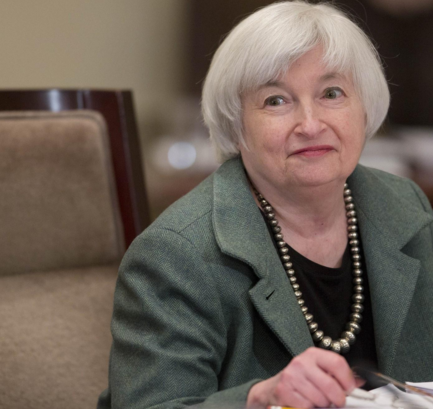Client notes out from Barclays and Bof AML courtesy of our friends at efxnews.com
Click here for your free trial
Barclays:
We find Federal Reserve Chair Yellen's confidence in the economic outlook during her remarks at Jackson Hole consistent with a near-term rate hike.
As we expected, Yellen stated, "in light of the continued solid performance of the labor market and our outlook for economic activity and inflation, I believe the case for an increase in the federal funds rate has strengthened in recent months." Her renewed confidence in the outlook for activity and inflation stems largely from the improvement in labor markets since mid-year and the rebound in household spending.
Finally, we note that the chair made no mention of the risks outlined in her June speech, including concerns over the resilience of domestic demand, sustainability of Chinese growth, nor the aftermath of the UK vote on EU membership.
Although some FOMC members have persistent lingering concerns about inflation, we read Chair Yellen's comments as in line with other FOMC communication in recent weeks which has consistently sounded hawkish, with most committee members indicating that at least one rate hike this year appears warranted.
In our view, her statements were as strongly worded as possible and we read her statements as consistent with a rate hike in September. We maintain our call for a September rate hike, subject to another solid employment report in August

Bank of America Merrill Lynch:
Fed Reserve Chair Janet Yellen's speech on "The Federal Reserve's Monetary Policy Toolkit" provided valuable insights into her view of current economic conditions. She agreed with the chorus of FOMC members calling for a rate hike this year, acknowledging that the "the case for an increase in the Fed Funds rate has strengthened in recent months" as the Fed is getting closer to its inflation and employment goals. Still, Yellen noted uncertainty with the economic data and did not give a specific timeframe for policy tightening. In our view, the speech marginally increases the risk of a September hike, but our base case is still for the next hike in December.
Yellen's remarks were interpreted by the market as slightly hawkish, given her mention of the potential for a near-term rate increase in coming months. However, her reiteration that the outlook is data dependent and the fact that she didn't strongly advocate for a September hike left the OIS market continuing to price relatively low chances of such a move. The market continues to assign roughly 60% chance to a December rate hike, which we feel is appropriate given the potential for an increase in uncertainty heading into the election. Longer-dated Treasury yields declined after Chair Yellen's remarks largely as a result of the continued discussion of near-term policy tightening which caps any sustained increase in longer-dated breakeven rates of inflation.
The toolkit is not broken
Yellen also took a step back from current economic conditions to discuss the high-level policy framework. She argued that the Fed's expanded toolkit (including interest on excess reserves, asset purchases and forward guidance) has been essential and effective. She also reiterated that the current set of tools, including interest rate cuts, forward guidance, and asset purchases should be sufficient to offset a moderate contraction in growth. However, her remarks assumed that interest rates cuts would be taking place from an average level of 3 percent and did not include mention of other tools that the Fed was actively considering utilizing.
Looking ahead, fiscal policy has an important role to play and policymakers should seek to boost productivity. Yellen also noted that future policy makers could consider an even broader asset purchase program may be considered in the next crisis. Although she mentions price level targeting and nominal GDP targeting, she reiterates the FOMC is not considering these frameworks at present. In addition, it is unclear how easily the Fed could adopt such changes given that some of them might result in increased political scrutiny or adjustments to the Federal Reserve act.
What do our wonderful FXL readers make of it all ?



